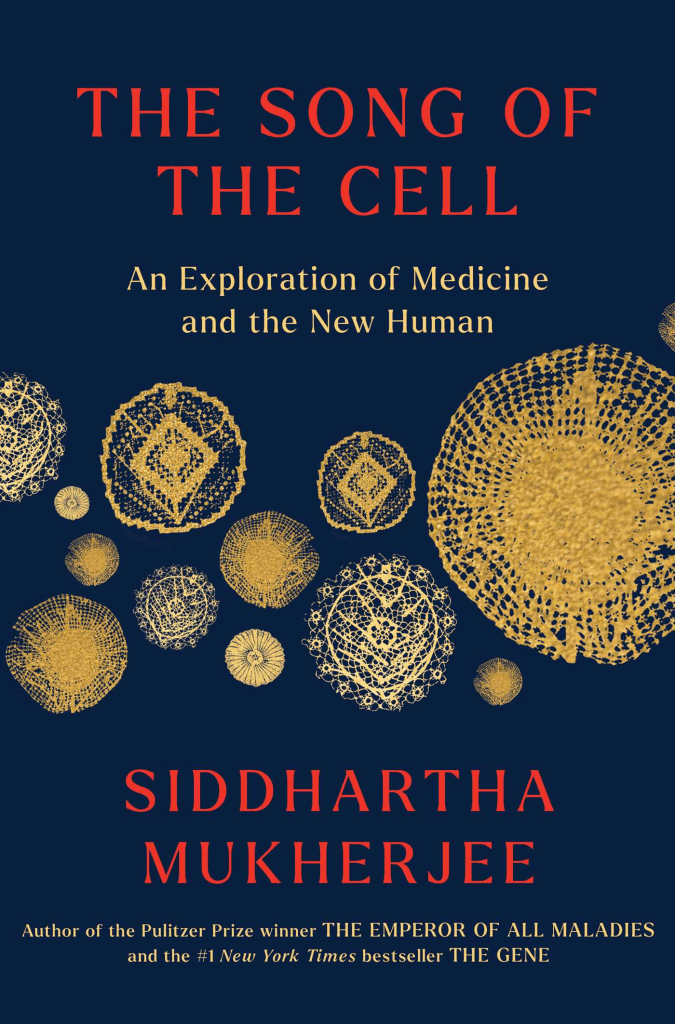“…Mukherjee speaks with such love, care and humility…he could make the weather forecast sound interesting,,,”
There’s something rather special about reading a book by someone you’ve never heard of, loving it, and then finding they are a famous author of several books. It kind of legitimises their success, in my mind. There will be some, I’m sure, who will tell me this book is nowhere near as good as his previous ones etc., etc., and that might well be true. But for me, as a first-timer with Mukherjee, this book is just about as perfect as you get.
That might be an odd thing to say, considering this is ‘merely’ a book about the biological cell, its parts, its various functions and the discovery of said functions and parts. This is, surely, a dry academic book; not something to get mushy about.
Nothing could be further from the truth. Mukherjee is a natural storyteller and his warmth for humanity shines through every paragraph. From his own anecdotes, where he shares about his depression and his relationship with his deceased father, to the stories of scientists throughout the history of science and from around the world – as well as the tales of many patients who have either gone through the various cellular treatments and survived, or died, because such advancements were not (or are still not) available – Mukherjee speaks with such love, care and humility that I found myself thinking he could make the weather forecast sound interesting if he wrote it with the same passion.
So the book is immensely readable, but works like this, made for lay audiences, usually mean a degree of dumbing down. Again, in this case, far from it. I teach Biology at A Level and, while I’m no expert in the subject, I do know a pretty reasonable amount about the cell – its structure, organelles, types around the body and their specialised functions. Yet, in every single chapter, I learned not just one little, minor piece of information but lots of new and fascinating things. Sometimes just the history of discoveries – such as how scientists discovered that the pancreas secretes insulin – other times in-depth knowledge such as how cells can tell the immune system that they are cancerous and why so often they can’t. Many of these tales and snippets of useful information have gone straight into my arsenal of things to tell students to make the subject more interesting and more memorable. This author is a mine of information who clearly knows what he knows well and is humble enough to say when he doesn’t.
This then is an ideal book for any student of biology. Indeed, I would recommend it to anyone just beginning their A level biology studies as a super introduction to the topic. But it is also an excellent book for anyone who has a general interest in science or simply loves learning. It is, I suppose, a ‘nerd’s’ book except that Mukherjee makes us care about the humans behind the discoveries and medical developments; not something nerdy books are known for. It’s a rather special mix.
I’m an absolutely converted fan to this author. Without a doubt, I will read more of his work and have little doubt that I will be heaping praise upon those books just as much as I have this. For now, I will continue to bask in the memory of the song of the cell – that is, if we have indeed heard the song at all. I’ll leave you to read the book to find out what I mean by that.
My Verdict:

Social Entrepreneur, educationalist, bestselling author and journalist, D K Powell is the author of the bestselling collection of literary short stories “The Old Man on the Beach“. His first book, ‘Sonali’ is a photo-memoir journal of life in Bangladesh and has been highly praised by the Bangladeshi diaspora worldwide. Students learning the Bengali language have also valued the English/Bengali translations on every page. His third book is ‘Try not to Laugh’ and is a guide to memorising, revising and passing exams for students.
Both ‘The Old Man on the Beach’ and ‘Sonali’ are available on Amazon for kindle and paperback. Published by Shopno Sriti Media. The novel,’The Pukur’, was published by Histria Books in 2022.
D K Powell is available to speak at events (see his TEDx talk here) and can be contacted at dkpowell.contact@gmail.com. Alternatively, he is available for one-to-one mentoring and runs a course on the psychology of writing. Listen to his life story in interview with the BBC here.
Ken writes for a number of publications around the world. Past reviewer for Paste magazine, The Doughnut, E2D and United Airways and Lancashire Life magazine. Currently reviews for Northern Arts Review. His reviews have been read more than 6.9 million times.

